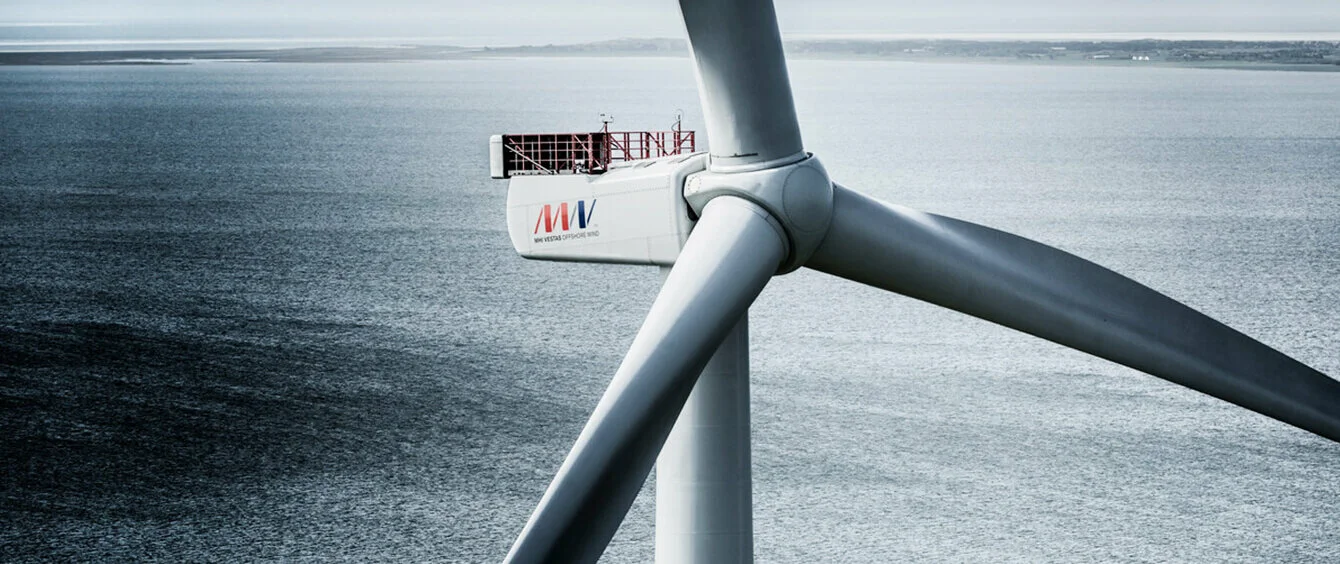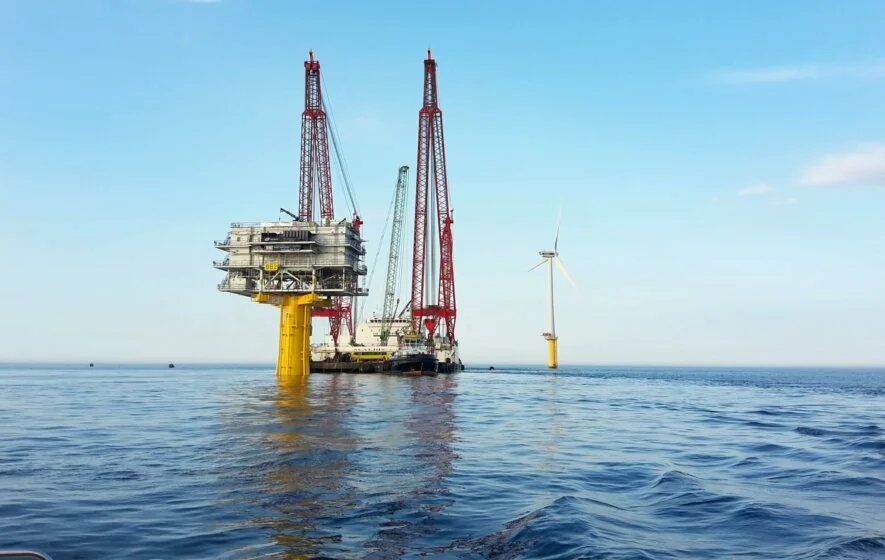
The MHI Vestas 9.5 wind turbine is twice as high as the Brussels Atomium, the city’s emblem. The turbine’s blades alone are 80 metres long, and the total height can top out at over 220 metres. At the moment it is the world’s biggest and most powerful wind turbine.
© Parkwind
further informationThe MHI Vestas 9.5 wind turbine is twice as high as the Brussels Atomium, the city’s emblem. The turbine’s blades alone are 80 metres long, and the total height can top out at over 220 metres. Such vital statistics make the new offshore wind turbine made by Danish firm MHI Vestas the world’s biggest and most powerful. A single such turbine can supply around 9,500 households with power. Now, for the first time, the Vestas 9.5 is being deployed off the Belgian coast. By the end of 2019, the first of the giant turbines are set to be supplying Belgium with green energy from the Northwester 2 offshore wind farm.
The power they will produce, however, has already been sold. RWE announced in late February that it has signed a long-term power purchase agreement with Belgian firm Parkwind, which operates the wind farm. In future, RWE trading subsidiary RWE Supply & Trading GmbH will sell all the power produced by Northwester 2. The contract is important for two reasons. Firstly, Belgium is planning to markedly expand its renewables capacity in order to achieve its climate targets, in which context the wind farm is set to play a major role. Secondly, it shows that long-term Power Purchase Agreements (PPAs) are gaining ground across the energy industry.
Between now and early 2020, a total of 23 wind turbines with a total capacity of around 219 megawatts are to enter operation in the Northwester 2 wind farm off the coast of Zeebrugge. They will then produce an average of 800 gigawatt hours of green electricity every year, all of which will be sold to RWE Supply & Trading. The firm intends to sell the renewable electricity and the associated guarantees of origin to its major industrial and municipal clients.
Belgium stakes energy future on offshore wind
Northwester 2 will be Belgium’s seventh offshore wind farm, with more still to come. By 2020, installed capacity is set to rise from 1.2 gigawatts (GW) at present to 2.2 GW, hitting 4 GW by 2030. Northwester 2 is one of Belgium’s ongoing wind-power expansion projects. And from 2020, a 221 square kilometre area is to be earmarked for new wind farms.
Ramping up renewables should offset some of the capacity loss from decommissioning the Doel and Tihange plants, which according to government plans are set to close in 2025. Furthermore, Belgium needs to generate a lot more power from renewables if it is to meet its climate targets.
Electricity generation in Belgium in 2017
Electricity generation by fuel (Source: Febeg)The contract signed between RWE and Parkwind, several months upstream of commissioning, shows how attractive offshore wind power has now become. “The signing of the power purchase agreement is another important milestone for the Northwester 2 project,” says Parkwind CEO Eric Antoons.
PPAs give buyers secure bulk supplies of green energy
PPAs, long-term agreements that are generally concluded between a seller (plant operator) and a buyer (such as a utility, power trader or bulk customer), are gaining ground across the energy sector. Most of the growth to date has been in the USA, but an increasing amount is in Europe.
This is an attractive opportunity for us to secure and manage electricity volumes from renewable generation for the future,” Andree Stracke, Chief Commercial Officer Origination & Gas Supply at RWE Supply & Trading
For power plant operators, the guarantee that their electricity will be bought secures revenue streams, helping them fund ongoing investment expenditure and plan for future investments. For buyers, PPAs reduce dependency on electricity and CO2 prices, both of which are subject to sharp fluctuations during periods of high demand. This provides their business with a long-term hedge against price risks.
“This is an attractive opportunity for us to secure and manage electricity volumes from renewable generation for the future,” says Andree Stracke, Chief Commercial Officer Origination & Gas Supply at RWE Supply & Trading. For Stracke, PPAs are a logical move given the growth prospects in renewables and increasing customer interest in boosting the share of green electricity in their energy mix. “It confirms RWE’s commitment towards the Belgian energy market and our ambition to expand in renewable energy activities,” he emphasised.
